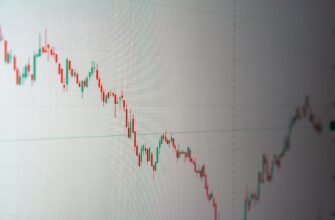- Understanding Bitcoin Tax Obligations in the UK
- How Bitcoin Gains Are Taxed in the UK
- Calculating Your Bitcoin Tax Liability
- HMRC Penalties for Non-Compliance
- How to Avoid Bitcoin Tax Penalties
- Frequently Asked Questions (FAQ)
- Q: Do I pay tax if my Bitcoin loses value?
- Q: Is Bitcoin taxed when transferring between my own wallets?
- Q: What if I mine Bitcoin?
- Q: Can HMRC track my Bitcoin?
- Q: How far back can HMRC investigate?
- Act Now to Avoid Costly Consequences
Understanding Bitcoin Tax Obligations in the UK
As Bitcoin and cryptocurrencies surge in popularity, UK investors face crucial tax responsibilities. Her Majesty’s Revenue and Customs (HMRC) treats digital assets like Bitcoin as property, meaning capital gains tax (CGT) applies to profits from disposals. Failure to comply can trigger severe bitcoin gains tax penalties in the UK. This guide explains how to calculate, report, and pay taxes legally while avoiding costly fines.
How Bitcoin Gains Are Taxed in the UK
You incur CGT when “disposing” of Bitcoin, including:
- Selling for GBP or other fiat currency
- Trading for another cryptocurrency (e.g., Bitcoin to Ethereum)
- Using Bitcoin to purchase goods/services
- Gifting to anyone except a spouse/civil partner
Key thresholds for 2023/24 tax year:
- Tax-Free Allowance: £6,000 in gains (reducing to £3,000 in April 2024)
- Basic Rate Taxpayers: 10% CGT on gains above allowance
- Higher/Additional Rate Taxpayers: 20% CGT on excess gains
Calculating Your Bitcoin Tax Liability
Follow these steps to determine owed tax:
- Identify Disposals: List all taxable events during the tax year (6 April – 5 April).
- Calculate Gain per Transaction: Sale price minus allowable costs (purchase price + fees).
- Apply Pooling Rules: Use HMRC’s “share pooling” method for multiple acquisitions.
- Deduct Annual Allowance: Subtract £6,000 from total gains.
- Apply Tax Rate: Multiply net gains by 10% or 20% based on income bracket.
Example: You bought 0.5 BTC for £10,000 and sold it for £18,000. Gain = £8,000. After £6,000 allowance, taxable gain = £2,000. At 20% tax rate, CGT due = £400.
HMRC Penalties for Non-Compliance
Failing to report Bitcoin gains correctly invites escalating penalties:
- Late Filing: £100 immediate fine + £10/day after 3 months (up to 90 days)
- Late Payment: 5% of tax owed at 30 days late, another 5% at 6 months, +5% at 12 months
- Inaccuracy Penalties: Up to 100% of tax owed for careless/mistakes, 200% for deliberate concealment
- Criminal Prosecution: For severe fraud (e.g., hiding £25,000+ in gains)
Penalties compound interest at Bank Rate + 2.5% (currently 7.75%).
How to Avoid Bitcoin Tax Penalties
Protect yourself with these proactive steps:
- Maintain Detailed Records: Track every transaction date, amount, GBP value, and fees for 5+ years.
- Use Crypto Tax Software: Tools like Koinly or CoinTracker automate gain calculations.
- File Self-Assessment Early: Submit by 31 January following the tax year end.
- Declare Uncertain Gains: Use HMRC’s “Digital Disclosure Service” for past undeclared assets.
- Consult a Specialist: Seek advice from crypto-savvy accountants for complex cases.
Frequently Asked Questions (FAQ)
Q: Do I pay tax if my Bitcoin loses value?
A: No tax is due on losses, but you can offset them against future gains by reporting via Self-Assessment.
Q: Is Bitcoin taxed when transferring between my own wallets?
A: No – transfers between wallets you own aren’t disposals. Tax only applies when changing ownership.
Q: What if I mine Bitcoin?
A: Mining rewards count as taxable income at market value when received, plus CGT applies on later disposal.
Q: Can HMRC track my Bitcoin?
A: Yes – exchanges share data with HMRC under Common Reporting Standard (CRS) rules. Non-compliance risks discovery.
Q: How far back can HMRC investigate?
A: Typically 4 years for innocent errors, 6 years for carelessness, and up to 20 years for deliberate tax evasion.
Act Now to Avoid Costly Consequences
With HMRC intensifying crypto tax enforcement, understanding bitcoin gains tax penalties in the UK is critical. By accurately calculating liabilities, maintaining records, and filing promptly, you avoid fines that can exceed original tax dues. When in doubt, seek professional guidance – the cost of advice pales against potential penalties for non-compliance.








